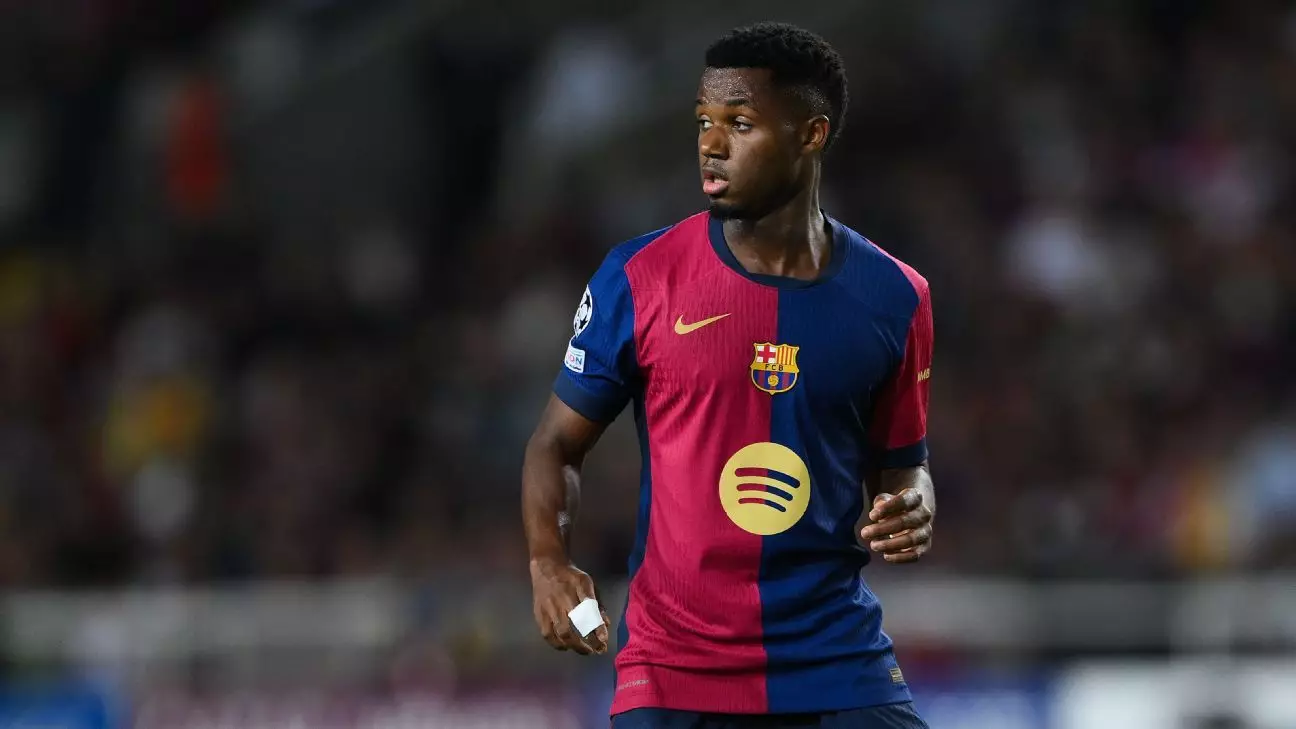The European football landscape is abuzz with anticipation as the winter transfer window approaches. Even though the window won’t officially open for some time, the ongoing speculation, negotiations, and potential player movements have already begun to take shape. This article delves into some key stories swirling in the world of football, with a particular focus on several high-profile players and clubs navigating this ever-changing market.
One of the most pressing stories is that of Ansu Fati and Barcelona. The talented winger, at just 21 years old, finds himself at a crucial juncture in his career. After a disappointing loan spell at Brighton & Hove Albion, Fati is eager to revitalize his playing form. Barcelona had grand expectations for Fati, but a pre-season injury restricted him to a mere 28 minutes on the pitch so far. With Barcelona already assessing their options for the winter window, they are contemplating a loan for Fati, provided they can find an adequate replacement who fits their salary constraints.
The dynamics of the decision are multi-faceted. The club must balance sporting ambition with financial prudence, which is a common theme among many top clubs in Europe. Should Fati depart, the opportunity could provide him with valuable game time to regain his momentum, while also allowing Barcelona the flexibility to reshape their squad for the second half of the season.
Similarly, Manchester United faces its own dilemmas with Alejandro Garnacho. The 20-year-old winger seeks more playtime, yet his ambitions appear at odds with the club’s strategy, especially considering his aspirations to represent Real Madrid one day. Reports suggest that United is unwilling to entertain offers below £70 million for Garnacho, indicating how highly they regard him.
This situation underscores a broader theme in football: the balance between player aspirations and club ambitions. Garnacho’s desire for first-team football isn’t just a personal goal; it is crucial for his development as a player. United, however, must consider the potential impact of his departure, not only on their squad depth but also on their financial positioning.
Meanwhile, Robert Lewandowski remains a pivotal figure for Barcelona. Despite being in the twilight of his career at 36, the striker has continued to deliver impressive performances. His current contract, set to extend to 2026 if he meets specific match incentives, reflects the club’s faith in his capabilities. Lewandowski’s commitment to remaining with Barcelona for another year could provide stability for the club, whose forward line has seen significant upheaval in recent seasons.
This partnership demonstrates the importance of veteran players in transitioning teams. While there is always a focus on acquiring young talent, the experience and leadership provided by seasoned players like Lewandowski are invaluable, often leading to greater success on the pitch.
Juventus is also in the spotlight as they navigate a tumultuous period, especially concerning Paul Pogba. With his recent doping ban reduced to 18 months, there are speculations about his potential exit from the club in January. Juventus appears to be focusing on reducing their wage bill, making a transfer for Pogba a plausible scenario. His departure could open the doors for fresh talent or allow the club to pursue necessary reinforcements in other areas of the squad.
Moreover, Juventus has been linked with an array of defensive options in light of Gleison Bremer’s injury. The club is casting a wide net, from younger, promising talents like Jorrel Hato of Ajax to experienced players like Simon Kjaer and Sergio Ramos. This dual focus illustrates their strategic approach to building a formidable squad capable of challenging for titles without sacrificing long-term sustainability.
As the winter transfer window approaches, clubs across Europe are faced with tough decisions, balancing immediate performance needs against the backdrop of financial stability. The stories of Fati, Garnacho, Lewandowski, and Pogba exemplify the complexities of talent management within the modern football ecosystem.
This period of speculation not only shapes the future of individual players but also defines the trajectory of clubs in their quest for success. As the month of January draws near, all eyes will be on the transfer market, where fortunes can change in an instant. The decisions made now will echo through the remainder of the season, impacting both player careers and club ambitions for years to come.

Leave a Reply